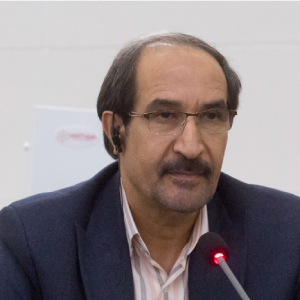-
|I|ntensify
cooperation with colleagues from universities of Iran and countries abroad both near and far
-
|R|esearch
the history of Russian-Iranian relations as well as the current economic and political ties between the two countries
-
|A|pply
new approaches and methods of research of Russia’s bilateral relations with the countries of the Middle East
-
|N|avigate
media projects to increase interest in Russian-Iranian relations
Conducting comprehensive studies of the economic, political and cultural relations of Russia and Iran
Conducting regular scientific events with specialists on the history and modern development of relations between Russia and Iran
Staff Members
Laboratory Head
Manager
Research Fellow
Research Fellow
Research Assistant

Research Assistant

Research Assistant

Research Assistant
Research Assistant
Research Assistant
Research Assistant
Research Assistant

Research Assistant

Research Assistant
Our Partners

Doctor of Political Science, the Director of the Institute of Iran and Eurasia Studies (IRAS)

Doctor of Political Science, the Deputy Drector of the Iran and Eurasian Research Institute (IRAS), Professor at Tehran University

Doctor of Political Science, a member of the Management Board of the Iran and Eurasia Research Institute (IRAS), Associate Professor of the Department of Political Science at the Islamic Azad University in Kuma

Doctor of Political Science, a member of the Management Board of the Iran and Eurasia Research Institute (IRAS), Professor of the Faculty of International Relations at the University of Tehran
Publications
-
Book
Slavery in the Modern Middle East and North Africa Exploitation and Resistance from the 19th Century - Present Day
What is the nature of slavery as practiced and at times reintroduced over the past two centuries in the Middle East and North Africa? In spite of the rich regional diversity of the areas studied – from Morocco to the Indian Ocean to Iran – this anthology demonstrates clear commonalities across the super-region. These include the regulation of slavery by Islam and local traditions, the absence of a rigid racial hierarchy as in North American slavery, the management of the sexuality and reproductive capacity of female slaves, and views on identity and heritage among descendants of slaves. Authors also examine the economic and theological underpinnings of contemporary slavery and human trafficking.
The book is among the first to focus on slavery across the Islamic world from the 19th century to the present – a period constituting the endgame of institutionalized slavery in the region but also the persistence of forms of de facto enslavement. Each chapter scrutinizes from a different vantage point – institutions, economics, the abolitionist movement, literature, folklore, and the moving image – creating a multi-dimensional picture of the phenomenon.
The authors have mined government archives and statistics, memoirs, interviews, photographs, drawings, songs, cinema and television. Not only are Arabic, Persian and Turkish sources leveraged, but a variety of materials in minor and endangered languages, such as Soqotri, Balochi and Sorani Kurdish, in addition to European languages.L.: Bloomsbury, 2024.
-
Article
Legal aspects of Islamic education development in Russia
This article examines the phenomenon of Islamic education within the context of the Russian Federation, focusing on its legal framework and institutional structure. It exam- ines the legal provisions governing the right to religious education and the regulations governing Islamic educational institutions. It provides historical insights, assesses the balance between religious and secular education, and analyzes the legal status of differ- ent levels of Islamic education, including maktabs, madrasas, higher education and postgraduate programs. By contextualizing these aspects within Russia’s broader educa- tional landscape, the article highlights key challenges, regulatory dynamics, and pros- pects affecting the development and future of Islamic education.
Cogent Education . 2025. Vol. 12. No. 1.
-
Book chapter
Russian Approach to Geoeconomics: Russian Economic Statecraft Since the Beginning of War in Ukraine
The war in Ukraine and sweeping Western sanctions introduced against Russia in 2022 have produced major changes in the Russian model of economic development and the Russian approach to economic statecraft. Under the new economic model, the Russian leadership is trying to turn the country into an “economic fortress” that will be self-sufficient in key areas of technology that are vital for national security and social stability. Major import substitution programs have been launched. External economic relations are reoriented toward cooperation with the Global South. Any dependence on the West is considered a weakness to be eliminated even if Russia still manages to secure access to some Western goods and technologies. But dependence on “friendly countries” like China in some sectors is also considered undesirable. Russian economic and industrial policies are undergoing a process of deep securitization, because Russia expects to operate in conditions of a new cold war against the West for the foreseeable future. One of the consequences of that trend is a major redistribution of economic power with Russian state-run companies as well as some domestic private companies cheaply purchasing the assets of global companies or the more “globalized” part of Russian businesses that chose to leave the country. This process will, in turn, lead to significant changes in the Russian economic and political elite, affecting future policies. In spite of the Western sanctions, Russia is still capable of using offensive economic tools to prevent certain countries from supplying weapons to Ukraine or taking other anti-Russian actions.
In bk.: The Oxford Handbook of Geoeconomics and Economic Statecraft. Oxford: Oxford University Press, 2025. Ch. 25. P. 431-454.








